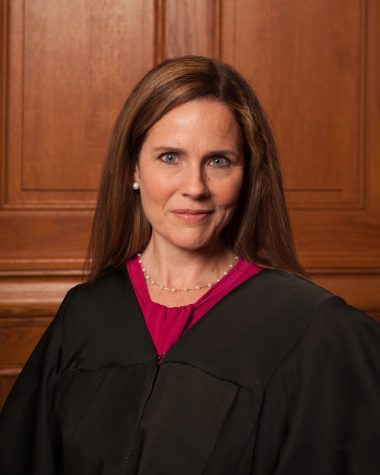Justice Breyer Retires: Biden’s Opportunity
In what appears to be common parlance, a Supreme Court justice has retired. Justice Stephen Breyer, the 83-year-old liberal justice appointed by former President Bill Clinton, announced his retirement on Thursday, January 28. The decision by Breyer came as the Supreme Court faced numerous difficult and controversial issues to rule on, including abortion and gun control. But more than that, it represents a much-needed victory for the Biden administration, which has been struggling with its agenda on voting rights and the so-called Build Back Better bill. Combine that with a declining approval rating, and it is no surprise why Justice Breyer’s retirement has provoked intense reactions across the political spectrum.
Breyer’s relationship with retirement was a long, difficult and sometimes polarizing issue. Among Democrats, Breyer’s hesitation in retiring was dangerously reminiscent of the late Justice Ginsberg, who refused to retire as she waited for a Democratic president to replace her. President Trump would eventually replace Ginsberg with Justice Amy Coney Barret, the youngest member of the Court. Democratic operatives organized protests at his speaking engagements. Op-eds appeared in newspapers across the nation. The message was crystal clear – it was time for a new liberal justice.
And it is not hard to see why. Before former President Trump’s victory in 2016, Democrats were betting on then-President Obama’s nomination of Judge Merrick Garland to replace Justice Antonin Scalia. Instead, Senator Mitch McConnell refused to bring Garland up for a hearing, saying they would wait until after the election to consider Supreme Court nominees. They would later appoint several justices, including Justice Barrett, just before the 2020 election.

Indeed, Republicans were waiting to block any Biden nominee they could after the midterms. However, with Breyer now retiring, their chances for obstruction have weakened considerably. However, that has not stopped them from mobilizing. Already, Republicans have begun warning that Biden’s nominee will be radical. Steven Law, chief executive of the Senate Leadership Fund, a GOP political action committee, has explained the rationale behind this approach, saying: “If the White House furthers its pattern of bowing to progressives in selecting Breyer’s replacement, it will further energize our base and put every Senate Democrat on the hook for approving that choice….”
It would appear strange to react with such hostility towards an unknown nominee, especially when the composition of the Court remains the same. However, it represents a dangerous shift for the Republicans. As I noted on my recent podcast, the rightward shift of the Court is not permanent. Breyer was the oldest member of the Court, but with his upcoming retirement and Democrats ready to appoint a new justice, the two oldest justices are now conservatives. Justices Clarence Thomas and Samuel Alito are now the oldest justices on the Court at 74 and 70, respectively. While it is unlikely that they will leave their positions anytime soon, the fact that the liberal justices are not leaving for a while does suggest future trouble for the Republican position in the judiciary.
To add to Republican frustration, Biden has promised to appoint a Black woman to the Supreme Court. The decision has incensed many Republicans, who see it as an attempt to press identity politics into the nomination process. Conservative pundit and Fox News host Tucker Carlson described Biden’s promise as putting skin color first.
And though this argument is likely to resonate with the GOP’s base, it is unlikely to play out well or prevent Biden from choosing a nominee that best breaks that historical barrier and brings a new perspective to the Court. Indeed, one of the possible nominees, Judge Ketanji Brown Jackson, served as a public defender and saw her uncle face the criminal justice system for a non-violent drug offense, something that would certainly influence her interactions with the Court and the criminal justice system at large. It is no surprise that civil rights organizations have been pushing for her to be on the Court, as her experience as a public defender could mean a new understanding of justice for decades to come.
Others under consideration are California Supreme Court Justice Leondra Kruger, who, much like Judge Jackson, has an extensive legal career behind her. Those around her have described her as “cautious and deliberate,” which could prove useful to her nomination if Senators Manchin and Sinema try to influence the proceedings. A graduate of Yale Law School and a former law clerk for then-justice John Paul Stevens, Kruger represents another example of well-rounded and reform-minded legal scholars that could serve as a powerful legal and rhetorical rebuttal of the right-ward shift of the Supreme Court.
And while the composition of the Court will remain six to three in favor of conservatives, the presence of a new, young liberal justice will almost certainly be an issue in November. If Biden succeeds, he may rebuild some momentum before the voters decide who keeps control of the House and Senate. History is on the line.












